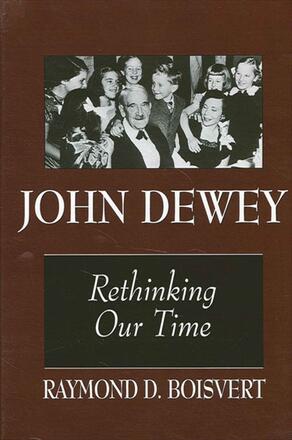
John Dewey
Rethinking Our Time
Alternative formats available from:
A concise, eminently readable introduction to the thought of America's most prominent philosopher.
Description
CHOICE 1998 Outstanding Academic Books
Written in a manner accessible to non-specialists, this book provides an introduction to all areas central to John Dewey's philosophy: aesthetics, social and political philosophy, education, the philosophy of religion, and theory of knowledge. Boisvert situates Dewey as a thinker who could appreciate the advance of science while remaining an "empirical naturalist" committed to the revelatory powers of lived experience.
Raymond D. Boisvert is Professor of Philosophy at Siena College. He is the author of Dewey's Metaphysics.
Reviews
"Ray Boisvert describes his little book as a 'primer,' whose 'aim is to serve as a brief and generally accessible introduction to Dewey's philosophy. ' He succeeds admirably … Boisvert, while also limiting himself to exposition, attempts to articulate Dewey's thinking in terms of the philosophic and public discourse of our time. " — International Studies in Philosophy
"This book is superbly written: clear, elegant, scholarly. It is a model of lucidity by a major Dewey scholar. It is far better than anything else in print as an introduction to the thought of John Dewey. Boisvert illuminates themes in Dewey with a variety of highly interesting examples drawn from literature, contemporary French and British philosophy, and science. This will be the book people will buy to get an overview of a major American philosopher. " — Thomas Alexander, Southern Illinois University at Carbondale
"This book helpfully integrates Dewey's diverse theories in terms of three central themes that reappear throughout his wide-ranging thought: the rejection of simple, monistic solutions, the challenging of purificationist reductions, and the refusal of disembodied idealisms. The author touches on all of the major areas where Dewey made a significant contribution to philosophy, from metaphysics and theory of knowledge to ethics, politics, and the philosophy of art, education, and religion. " — Richard Shusterman, Temple University